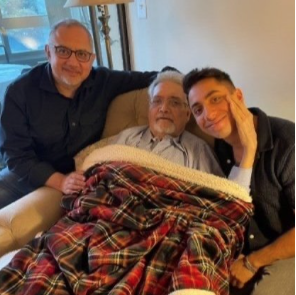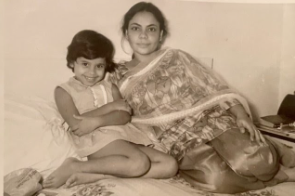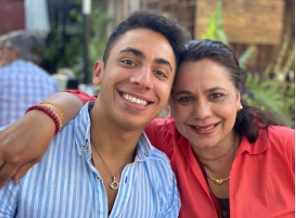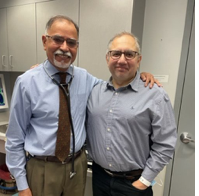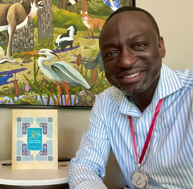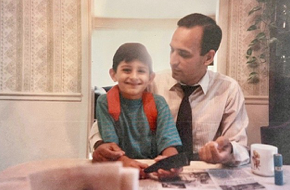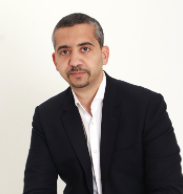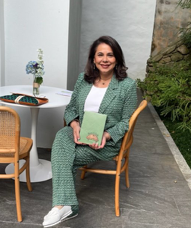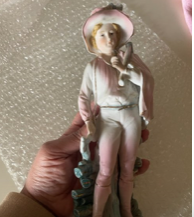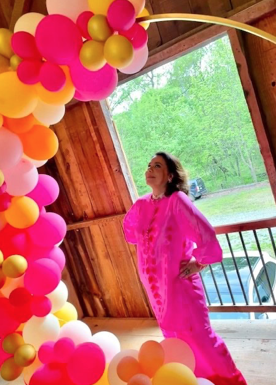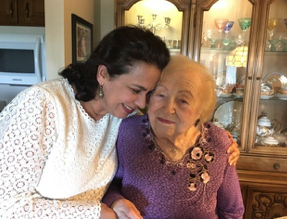Every life lost a story
No words—‘devastating’, ‘agonizing’, ‘heart wrenching’—can begin to capture what the people of Gaza are going through right now, each day worse than the day before. How can a word possibly convey a mother’s anguish of holding her child wrapped in white cloth?
In the two months since the horrific attack on Israel that killed 1,200 people and resulted in the abduction of 240, more than 20,000 Gazans have been killed. Including nearly ten thousand children; thousands more are left orphaned or physically and mentally scarred.
The use of these numbers feels inadequate too. Whether it’s 1 or 1,200 or 20,000, how can a number possibly reveal the suffering of those for whom it is their loved ‘one’ – the one held hostage, the one dead from starvation, the one crushed to death under the rubble. Loss cannot be expressed with a succinct, concise, terse number, no matter the number of digits it contains; it can only be seen as 1+1+1+1+1+1+1+1+1+1+1 ….
Each person a life story. Each person someone’s “soul of my soul”.
We are not numbers.
A number does not incite compassion or action; stories do that. In fact, studies have shown that the higher the death toll, a numbing can set in. The scale of human suffering can feel so overpowering that it paralyzes our response; we think there’s no way we can impact such a massive catastrophe. It’s personal stories that provoke empathy and action.
Every story matters. Every life is as important as another.
And yet not all stories are valued equally. Or felt with the same compassion. Or shared in the same way. Why is someone’s story considered more important?
What happens when the storytellers themselves are killed.
Poet, professor, and storyteller Refaat Alareer was one of the founders of the nonprofit organization “We are not numbers”, which pairs Palestinian writers with mentors so they can tell their own stories, in English, to broader audiences.
Refaat was killed last week by an Israeli airstrike, alongside six members of his family. Just weeks earlier, he posted his poem “If I must die, you must live to tell my story”.
If I must die,
you must live
to tell my story
to sell my things
to buy a piece of cloth
and some strings,
(make it white with a long tail)
so that a child, somewhere in Gaza
while looking heaven in the eye
awaiting his dad who left in a blaze –
and bid no one farewell
not even to his flesh
not even to himself –
sees the kite, my kite you made, flying up
above
and thinks for a moment an angel is there
bringing back love
If I must die
let it bring hope
let it be a tale.
Drawing of Khaled and Reem shared on social media. Credit: Mahnaz Shabbir
Stories not only provide context for the individual, human suffering that comprises mass, inhumane devastation, they also help change the narrative of who we see on the ‘other’ side. Perhaps no story has done this more clearly in recent weeks than that of a grandfather named Khaled and his granddaughter Reem. We watched the video of Khaled kissing and hugging the “soul of his soul” who was killed in an Israeli airstrike. He kept opening her eyes, kissing them, hoping against hope that she would wake up.
Khaled lived with his daughter and grandchildren. He rode bikes with his grandkids, played with their dolls and toys, and knew how to do their hair just the way they liked it. He loved doing Reem’s hair in two neat ponytails; that’s how he buried her. Khaled found one of Reem’s earrings as he dusted off her body and pinned it to his kurta as a badge of remembrance. Days later we saw Khaled in a hospital helping the injured, despite his own grief. Reem would have turned four next Saturday; she and Khaled shared the same birthday. Khaled said he will never celebrate his birthday again.
These images and stories of a bearded, turbaned Arab man, a ‘character’ demonized in western media and action films, have done more to counter this stereotype and reveal an entirely different picture – of a gentle, caring, dignified Arab man, who giggled with his grandchildren, fixed their hair, and hunted down tangerines when they craved fruit.
Our stories matter
When I shared my first personal story, Pakistan on the Potomac, a Jewish grandmother wrote to me and said, “I was struck with how similar you and your faith and values are to my family. Your struggles are identical to ours in terms of our wanting to pass on traditions, worrying about perceptions from the public, and the trials and tribulations of raising our children and grandchildren and passing on our core values. I realize that people from all over the world have more similarities than differences and your writing brings that to light.”
Her message continues to inspire my writing; it’s what convinced me of the power of our ordinary stories to bring us closer together, to help us understand each other better. I often share the stories of Muslims, through my 30 Days project for example, so people who may not have a Muslim neighbor or friend can ‘meet’ one through a story. Stories help disrupt stereotypes and cliches, and allow us to get to know each other as people. They help us forge an emotional connection; to develop a sense of familiarity with someone who may seem like an ‘other’. Writer Elif Shafak puts it beautifully, “Just as we need sisterhood against patriarchy, we need storyhood against bigotry.”
My hope is that by continuing to share our stories we can transform the word ‘other’, so it doesn’t mean someone who is different from us, but rather it can be used as an acronym: One Together with Humanity Equality and Respect.
On Friday, I had a chance to sing, to catharse some of the emotion I know we’re all feeling (thank you Ami). We sang a few verses—some of us in Arabic, others in Hebrew, some in English—and Micah and Amer of the Jerusalem Youth Chorus brought us together in beautiful harmony. We sounded whole and melodious, even through our tears—perhaps because of our tears.
I hope we’ll all continue to raise our voices for peace. I’ll continue to share stories of humanKIND. Thank you for being part of this story sharing newsletter; it means so much to me. I wanted to share 12 wisdoms I’ve learned from some of the stories I’ve shared; hope you’ll revisit any stories you may have missed. Hope you’ll share your thoughts too, just hit reply; it would be the best gift.
And as naïve as it may seem given all that’s going on in the world, I will continue to hold on to something I read that motivates my storytelling: It’s impossible to hate someone, whose story you know.
With my love and with abiding prayers for peace,
Salma
12 Wisdoms I learned from humanKIND
1. It doesn’t always take words to communicate wisdom.
My father-in-law was the most dignified man I knew; a man of few words who taught me a lifetime of lessons through his quiet example.
2. Cherish time with your parents and elders.
A welcome letter I wrote to my mom when she moved in with us earlier this year.
3. The Big 5: health, faith, balance, joy, kindness.
There was so much I wanted to tell my son, on the eve of his move to NYC, but the most important wisdoms I shared were those that were reinforced that week.
4. Write a letter of gratitude. And read it out loud to the person.
Arif just had his one year check-up after his quadruple bypass surgery; Alhumdulillah he is doing well. I wrote a gratitude letter to his doctor and read it to him—no one has ever done that before, he said.
5. Keep moving forward, the best you can.
A visit to Chautauqua to hear Shahidul Alam, Angelique Kidjo, and Sanjay Gupta reinvigorated a stressful summer and reminded me to hold on to hope.
Dr. Yusef Salaam shares a wisdom from his grandmother that helped him in prison. He is now the elected representative of NYC’s City Council from the area where he was once wrongly accused of being part of the “Central Park Five”.
7. Always look for the good in people.
Growing up, Farhan Latif’s father would always bring a conversation back to the good in each person—a lesson that now guides Farhan’s life.
8. Question everything, and everyone.
Mehdi Hasan shares a wisdom he learned from his father that has clearly become his hallmark: to relish every challenge and objection, and to push against the status quo.
9. Nature heals, stories connect, the combination is inspiring.
Amazing to launch BenchTalk around the country (including with Brunello Cucinelli!), to rave reviews (thank you Washington Post!), and to see the impact this little book of wisdoms is having on so many.
10. There’s always a story. Ask.
It’s not the object that’s important; it’s the story behind it. Like the story of this figurine. And the story of this katori. The stories are priceless.
11. “We all have to go sometime, why not live while we’re here.”
Lesson learned from a dancing grandmother who loves romance novels and Japanese Netflix movies. Thank you for the reminder to embody joy!
12. Keep telling stories of our shared human connection.
Blanche, a Holocaust survivor; a Palestinian woman with mamool cookies; KindSoup to share—these are the stories we need to hear, share, believe in, hold on to.
Looking forward to sharing more stories of humanKIND in 2024, thank you for being part of this journey. If you know someone who might enjoy these stories, hope you’ll pass this along, they can subscribe here.
With love, and with prayers for peace in the new year, inshAllah.
PS: For anyone looking for a meaningful, handmade, last minute gift for the holidays and new year, hope you’ll consider my books, 30 Days: Stories of Gratitude, Traditions, and Wisdom, the 30 Days Journal, BenchTalk: Wisdoms Inspired in Nature. Reply to this email and I’ll make sure you get them asap. Thank you.
————
Please follow more inspiring stories on Instagram @salma.hasan.ali.
This is newsletter #36. If you know anyone who might enjoy this newsletter, they can subscribe for free here.


